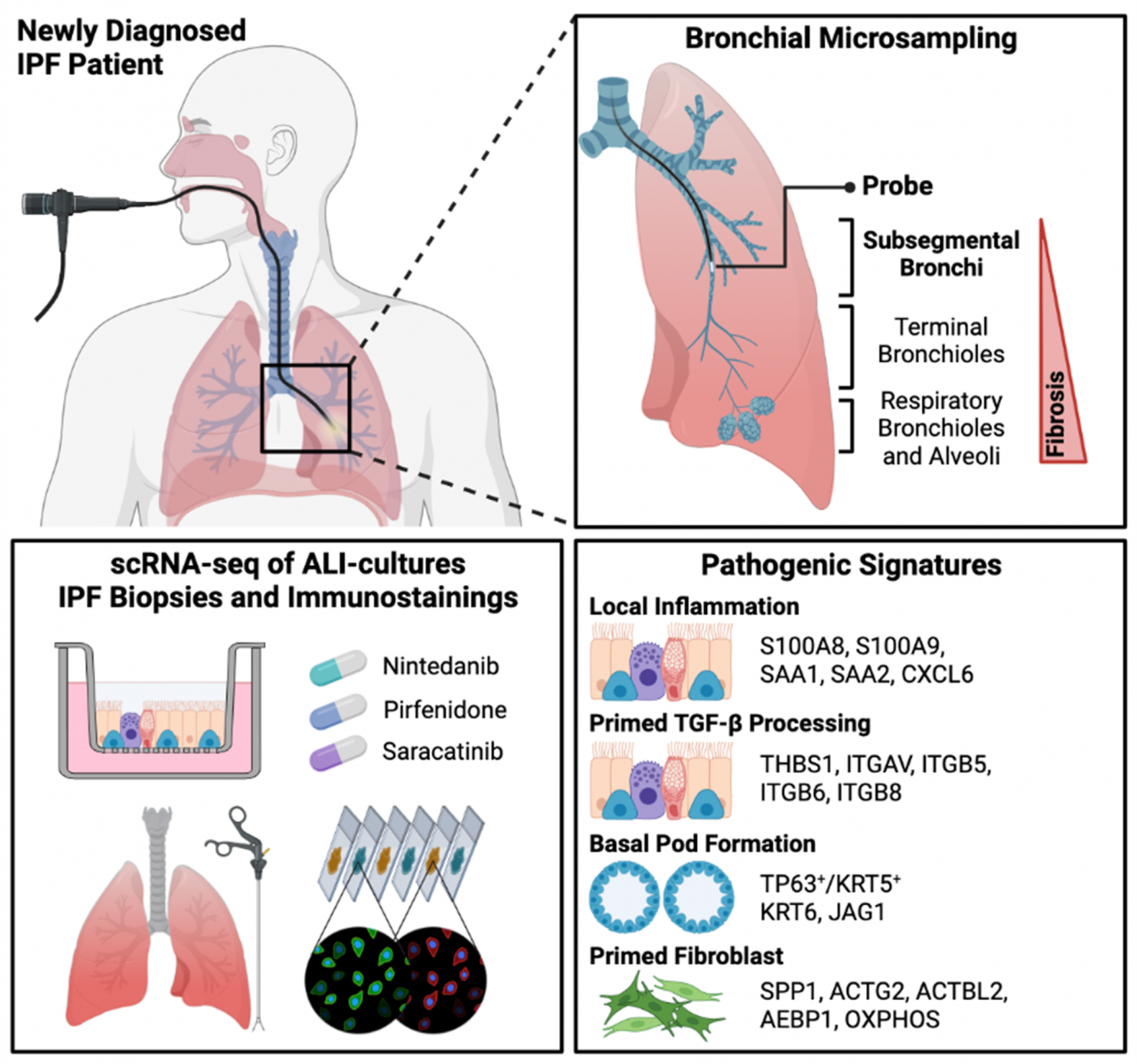Abstract
Prior investigations hinted at the role of airway epithelial cells in the development of idiopathic pulmonary fibrosis (IPF), while single-cell RNA sequencing (scRNA-seq) atlases utilized explant lungs that represent end-stage disease. A better understanding of any earlier cellular phenotypes of the IPF airway mucosa and their responses to established drugs like nintedanib and pirfenidone is still missing. We sought to in interrogate the transcriptional landscape of the airway mucosa to identify earlier disease signatures and their responses to drug treatments. Here, we used air liquid interface (ALI) cultures of primary cells taken from the bronchi of newly diagnosed IPF patients. In vitro administration of established antifibrotic drugs, nintedanib and pirfenidone, and an Src kinase inhibitor, saracatinib, were performed to investigate the cellular responses to these drugs. Profiling of 129,986 cells identified a shared proinflammatory state in epithelial cells and an early activation state of fibroblasts. Moreover, IPF basal cells initiated awry repair mechanisms and primed the airway mucosa for TGF-β activation. All three treatments only significantly affected certain IPF signatures. This study provides further insight to IPF disease mechanisms and highlight potential therapeutic targets. Moreover, our study may serve as a resource to further investigate pharmacological inhibition effects.
